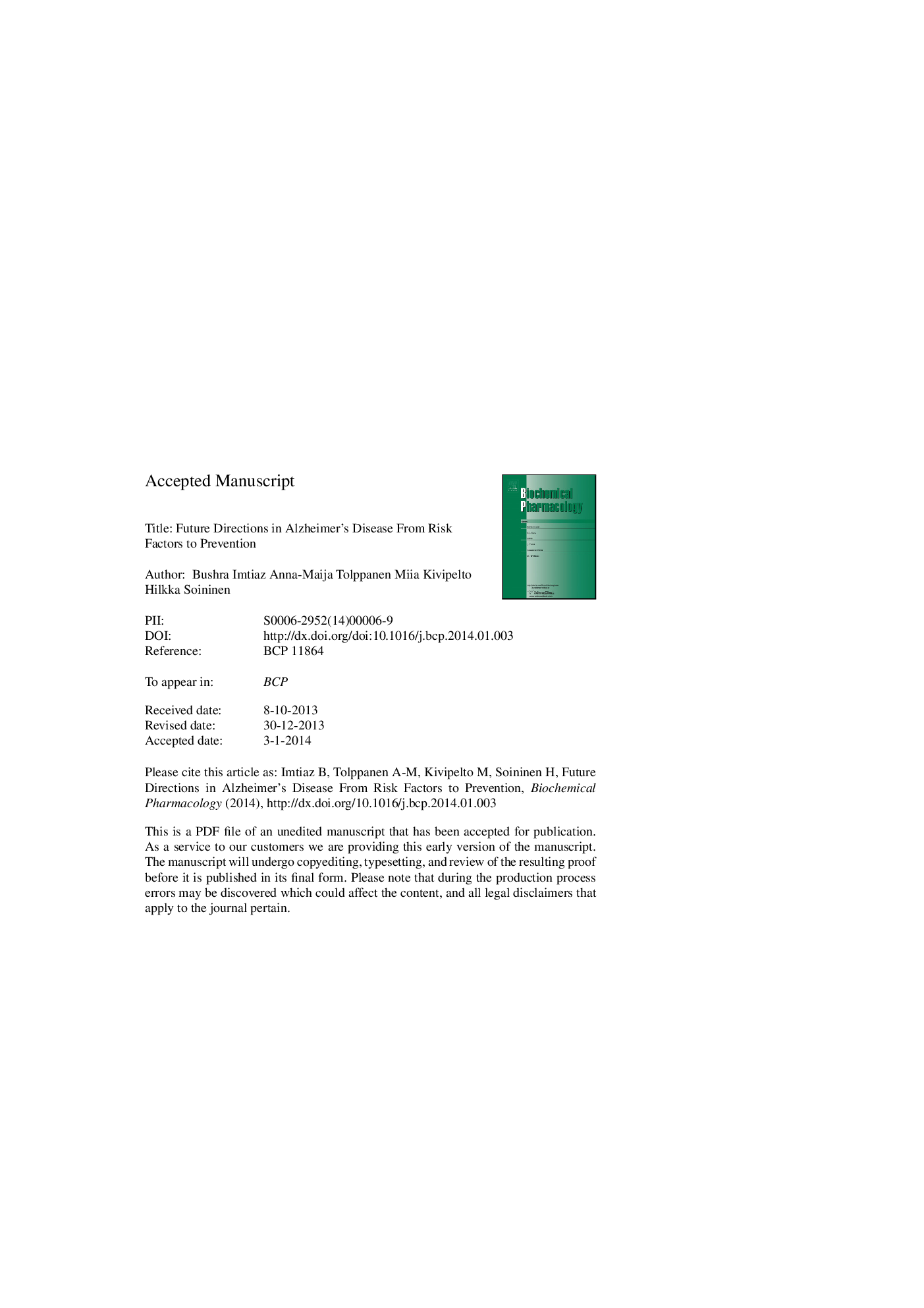| Article ID | Journal | Published Year | Pages | File Type |
|---|---|---|---|---|
| 5823609 | Biochemical Pharmacology | 2014 | 27 Pages |
Abstract
The increase in life expectancy has resulted in a high occurrence of dementia and Alzheimer's disease (AD). Research on AD has undergone a paradigm shift from viewing it as a disease of old age to taking a life course perspective. Several vascular, lifestyle, psychological and genetic risk factors influencing this latent period have been recognized and they may act both independently and by potentiating each other. These risk factors have consequently been used to derive risk scores for predicting the likelihood of dementia. Despite population differences, age, low education and vascular risk factors were identified as key factors in all scoring systems. Risk scores can help to identify high-risk individuals who might benefit from different interventions. The European Dementia Prevention Initiative (EDPI), an international collaboration, encourages data sharing between different randomized controlled trials. At the moment, it includes three large ongoing European trials: Finnish Geriatric Intervention Study to Prevent Cognitive Impairment and Disability (FINGER), Prevention of Dementia by Intensive Vascular Care (preDIVA), and Multidomain Alzheimer Prevention study (MAPT). Recently EDPI has developed a “Healthy Aging through Internet Counseling in Elderly” (HATICE) program, which intends to manage modifiable risk factors in an aged population through an easily accessible Internet platform. Thus, the focus of dementia research has shifted from identification of potential risk factors to using this information for developing interventions to prevent or delay the onset of dementia as well as identifying special high-risk populations who could be targeted in intervention trials.
Related Topics
Health Sciences
Pharmacology, Toxicology and Pharmaceutical Science
Pharmacology
Authors
Bushra Imtiaz, Anna-Maija Tolppanen, Miia Kivipelto, Hilkka Soininen,
